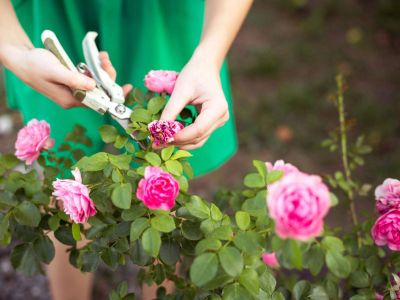Maintaining Northwest Gardens in June
Your gardening to-do list for June depends largely on your climate, but most areas of Oregon, Washington, and Idaho are seeing warmer temperatures and are finally beyond the last frost. Here are a few ideas to get you started.
It’s safe to remove leaves from tulips, daffodils, and other spring bloomers as soon as they turn brown and you can easily pull the foliage. Gardeners in Central or Eastern Oregon may need to wait a little longer.
Get in the habit of pinching off wilted blooms every day to keep annuals and perennials blooming as long as possible. Go ahead and divide overcrowded summer- and fall-blooming perennials, as long as the plants are under 6 inches (15 cm.) in height.
You still have time to fill empty spots with petunias, marigolds, and other colorful annuals; and you may find some good buys at garden centers.
Plant corn, winter and summer squash, cucumbers, melons, green beans, and other heat-loving veggies in Northwest gardens in June, when the soil is warm, generally about two weeks after the last frost date in your area. You still have time to plant beets, carrots, and other root crops too.
A couple of weeks after the last frost date is also time to start planting gladiolus and other summer bulbs.
Replace mulch that has decomposed or blown away, but not until the ground is warm. Mulch such as bark, sawdust, or dried, chopped leaves will conserve water and help keep weeds in check.
Watch for aphids, mites, and other small, sap-sucking insects. Most are easily controlled with insecticidal soap spray. Pick caterpillars off plants by hand. Drop them in a bucket of soapy water, or toss them out where the birds can get them.
Your gardening to-do list should always include weed control. Keep pulling or hoeing the pesky plants as soon as they sprout. If weeds are out of control, be sure to chop their heads off before they go to seed.
